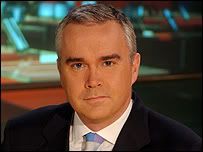There's a government document in England that everyone seems to be up in arms about. It's called, rather unassumingly,
The South East Plan. It's a dull document, but it's creating a fury -- and because of this fury, I'm driven to come out in support of it.
The South East Plan is a big document. I'm guessing there are probably more than 500 pages of the sucker. (In the unlikely event that you're interested in reading it, you can find it here:
http://www.southeast-ra.gov.uk/southeastplan/plan/view_plan.html)
If you look at the whole thing, it looks like a whole load of very expensive bureaucratic nonsense. Which is probably, for the most part, pretty accurate. But within the document, there are some key "strategies" that people are worried about.
The most controversial one is the housing plan. The government wants local councils to build 28,900 new houses in the South East every year.
I think it would be difficult to count the number of letters to the editor I've seen in the regional press decrying this plan. People are constantly writing in to say there's already far too many houses in the region.
You can obviously never tell what the people who write these letters look like. But I would be willing to gamble everything I have on the fact that they're white, they're older, they're homeowners, and at least half the time, they've probably been living in the same village their whole lives and they're scared of outsiders living nearby. The letters are always like, "Oh, you can't build houses near where I live because it's pristine and wonderful, and what about my children? These outsiders will probably run them over in the street." Not only that but, the houses will "destroy the character of the neighbourhood."
What they're really saying is: "I have a nice house and my nose is in a knot because I don't want the value of said house to go down if there are lots of other houses on offer nearby. Plus, this neighbourhood is a white neighbourhood and I'd rather keep it that way."
In this country, one out of three houses bought is bought as a buy-to-rent investment rather than as a home. It means that people who already own homes are snapping up the available ones. That is a statistic I've seen published in a reliable newspaper. It leaves people who are not on the property ladder in a really tough situation.
I think it is sad that homeowners in the South East -- many of whom have seen the value of their homes triple in the past few years -- can only think of themselves. An average house in the South East is now worth more than £200,000 (approximately $400,000). That is also a statistic I've read in reliable newspapers.
Young people, such as myself, immigrants, people who have had significant life disruptions -- such as really difficult divorces -- need to be able to get on the property ladder and it is unfair that homeowners are blocking new builds because they don't want to see the value of their homes decrease.
Some homeowners are obviously also concerned with traffic and a lack of infrastructure (like doctors, parking spaces, roads). But for the most part, if everyone were being honest, they would say that they're trying to protect their pocketbooks when they try to block more houses from being built.
These people have money so they naturally have more power and influence than the above-mentioned young, immigrant, disadvantaged, etc, people -- so it's likely they'll get their way. Even if
The South East Plan continues to contain the magic 28,900-houses-to-be-built-every-year statistic, the homeowners will probably scare off the builders somehow. I just hope they realise their children will suffer because of their actions.





